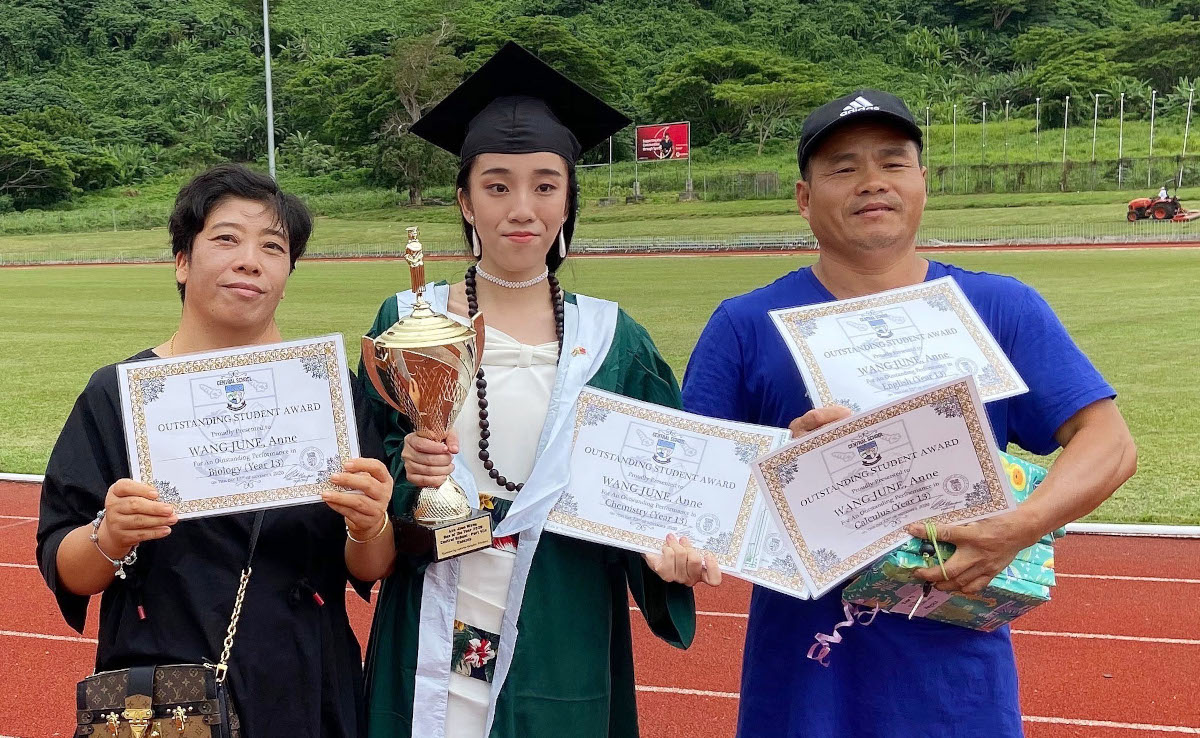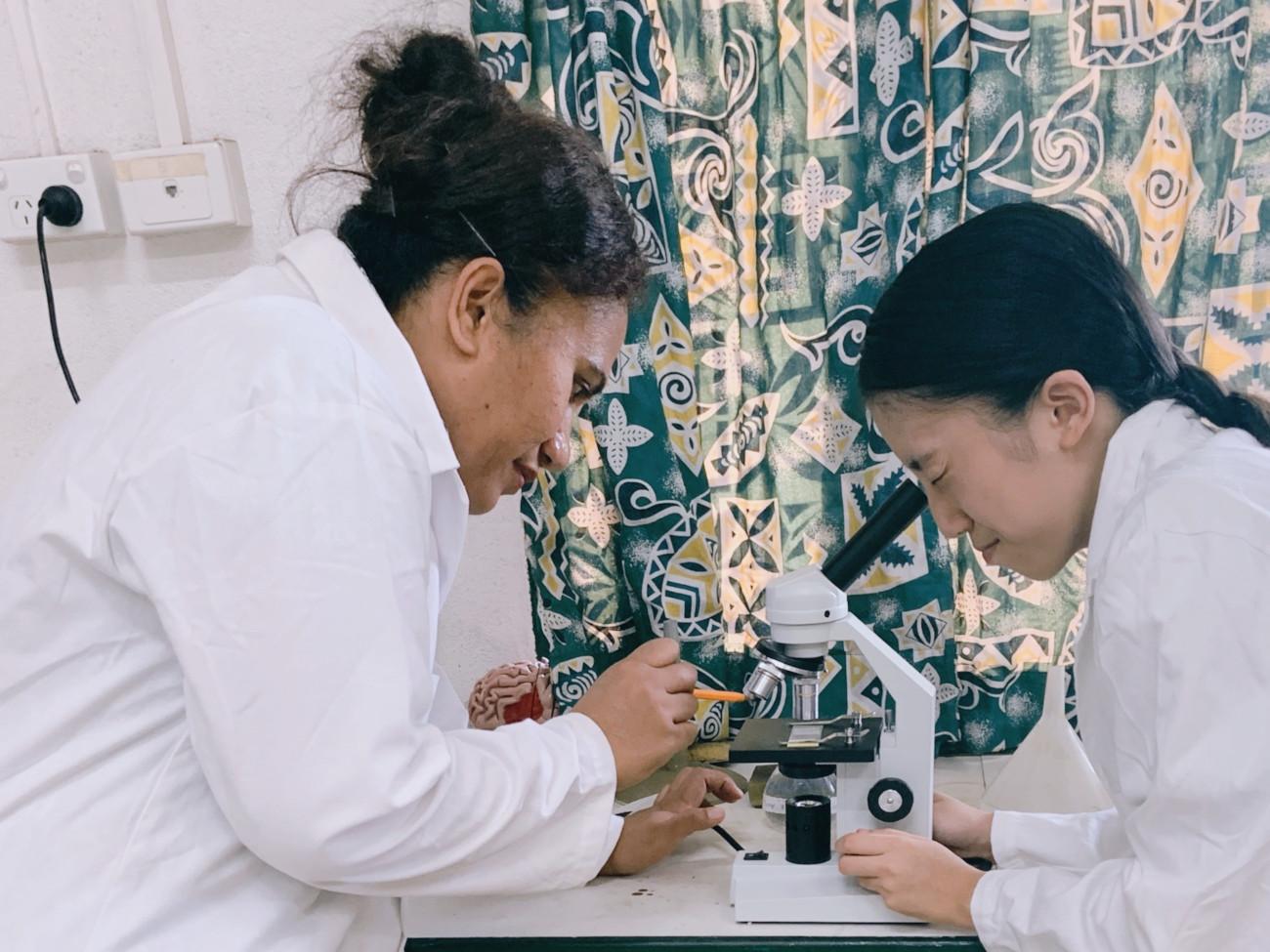« Les filles ont besoin de plus de modèles féminins qui réussissent dans les disciplines scientifiques ou font carrière dans des métiers scientifiques typiquement masculins », explique Anne Wang June, meilleure élève de la promotion 2020 du programme secondaire régional. « Elles pourront plus facilement s’imaginer faire carrière dans les sciences. »
(Contenu complet disponible en anglais uniquement)
Photo: Anne June, right, in the laboratory with her biology teacher, Mrs Fatai
GIRLS need to see more female role models who have either succeeded in science subjects or are flourishing in male-dominated science fields, says Anne Wang June, the highest achiever in last year’s regional Year 13 programme.
“This will make it easier for girls to envision themselves taking a similar path to succeed in a science career,” said Ms June, in an email interview.
“Personally, I believe it is due to gender stereotyping or gender inequality (that less girls study science),” she said. “And this can be challenged by introducing girls to examples of female role models who have succeeded in STEM (science, technology, engineering and mathematics) subjects or careers. The main idea is to demonstrate these women as relatable and to highlight their journey of success in science.”
Ms June, who graduated from Vanuatu’s Central School last year, achieved the top score in the South Pacific Seventh Form Certificate (SPFSC) programme that is administered by the Pacific Community’s education division, the Educational Quality and Assessment Programme (EQAP).
She said many girls perceived STEM subjects to be “male subjects” or “difficult”. This, she said, was why targeted promotions, like showcasing more women succeeding in the sciences, to address this misconception would help girls believe in their abilities.
“This would allow them to realise their potential and ability in science which will encourage more female students to pursue science careers. After all, science is nothing to be feared, but something to be understood,” she said.
For June, it was understanding the significance of science to everyday life that set her on the path to study science. This understanding crystalised for her when her mother was diagnosed with breast cancer 10 years ago. The diagnosis was possible after her father insisted on more conclusive answers, something that was only possible through a specimen test. Such tests could not be conducted in Vanuatu at the time and so a specimen had to be sent to Australia.
“Without the disease being found out at an early stage, my mum would not be surviving until present,” shared June. The experience underlined for her the importance of science, and especially the need for accurate and timely biomedical examinations.
“Therefore, in the future, after I complete my studies, I hope to become a biomedical scientist so that I can return to Vanuatu and work with my colleagues to help improve the health standards and life expectancy of the people of Vanuatu,” she said.
June also shared her thoughts on introducing simple science experiments earlier in the curriculum. She believed it would lure more students to take a keen interest in science. She said the experiments component were among the highlights in her studies, and added that the Y13 experiments, which form the internal assessment (IA) component of the SPFSC programme, were especially helpful to her learning.
“The IAs allowed us to apply knowledge practically rather than on paper only; it allowed us to acquire important skills associated with researching, public speaking and many more,” she explained.

